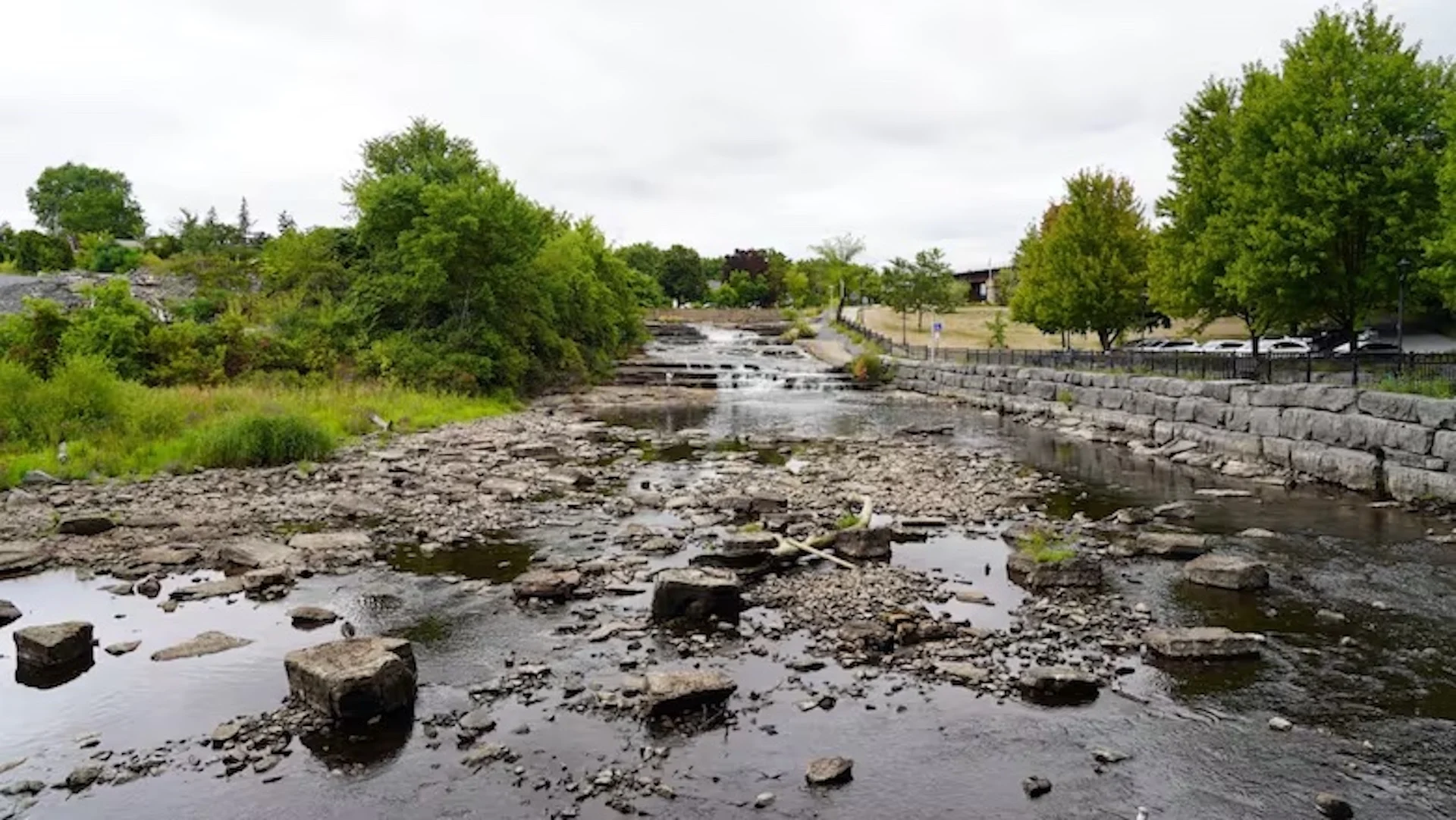
Eastern Ontario watersheds still running dry after drought as fall approaches
Cooler weather and a bit of rain have arrived after an unusually hot and dry summer in eastern Ontario, but they're not enough to reverse the effects of the severe drought plaguing many of the region's rivers.
Five of eastern Ontario's six conservation authorities have reported critically low water supplies in some areas.
SEE ALSO: Ontario's fall colours hang in the balance: Brilliant or browning?
A Level 3 advisory — the most severe low-water warning a conservation authority can issue — has been declared in the Cataraqui, Rideau Valley, Carp, South Nation and Quinte watersheds, meaning the supply in those rivers is currently too low to meet demand.
"It's definitely something we haven't seen in the past few years," said Kathryn Starratt, a water resources specialist with the Mississippi Valley Conservation Authority, the latest to declare a Level 3.
"We are seeing these conditions persist into the fall, and we don't have any major indicators of relief at this time."

Water resources specialist Kathryn Starratt stands near a bone-dry retention pond behind the Mississippi Valley Conservation Authority's building. (Aya Dufour/CBC)
The dry rivers will not impact the City of Ottawa's central drinking water system, but they may have consequences for residents and businesses who rely on private water systems including groundwater wells.
The Mississippi Valley Conservation Authority is asking those who rely on wells to reduce their water consumption by 50 per cent.
'We don't have the choice'
That's a tall order for businesses whose operations depend on water, like the Carp Garden Centre.
Owner Jonathan Marshall said his business has done its best to minimize water usage, including investing in better irrigation systems. He can't even fathom what would happen if his well dried up.
"We don't have the choice not to water our plants, we have to keep them alive to make money," he said.

Owner Jonathan Marshall says the Carp Garden Centre is already using as little water as possible, and he doesn't see many other options for cutting down use. (Aya Dufour/CBC)
Marshall said it would cost thousands of dollars to truck water in or drill a new well, and that would spell financial disaster for his business.
The low water level advisory is also making the local golf course uneasy. Peter Sinclair, head of grounds at the Irish Hills Golf and Country Club, said this has been the driest summer he's ever experienced.
"It requires a lot more work," he said.
Without the golf course's holding ponds and natural springs, Sinclair said he wouldn't have been able to keep the grass alive this summer.
"If we were to rely on our wells, we'd be in trouble," he said.

Peter Sinclair, head of grounds at the Irish Hills Golf and Country Club near Carp, says without the natural springs that feed the course's ponds it would have been impossible to keep the grass healthy throughout this sweltering summer. (Aya Dufour/CBC)
Sinclair said other golf courses have faced an impossible choice this summer — especially those that draw on the Mississippi river, where the local conservation authority has asked permit holders to reduce consumption.
Starratt said she's been fielding lots of emails from the public with concerns about water levels, but added there's nothing the conservation authority can do about the drought.
"If I had it within my control to sprinkle rain where I wanted to, I would love to do that," she said.
Thumbnail courtesy of Daniel Taekema/CBC.
The story was originally written by Aya Dufour and published for CBC News.